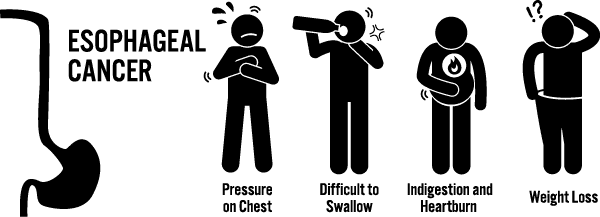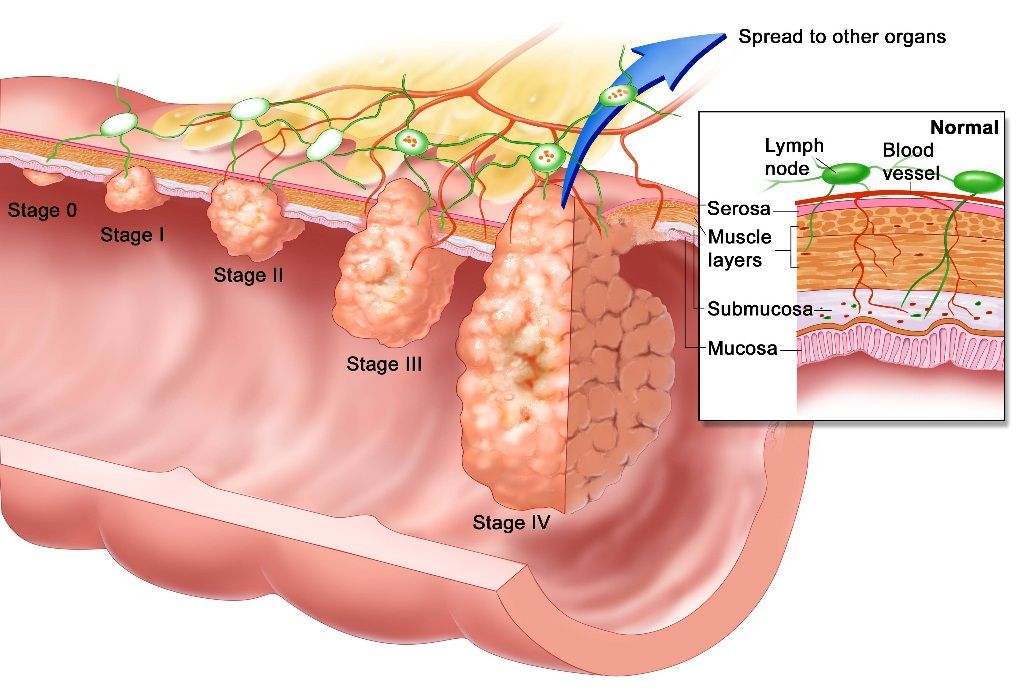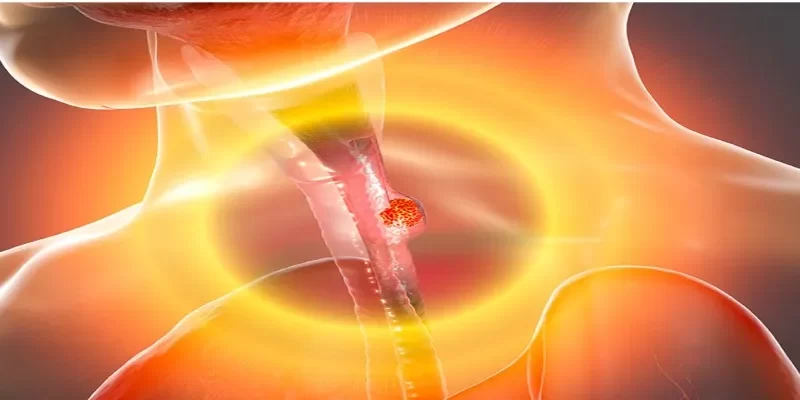Esophageal cancer, also called cancer of the food pipe, occurs in the tube connecting the stomach and throat. It is aggressive cancer having a poor prognosis compared to other cancers of the gastrointestinal tract.
Dr. Sandeep Nayak, one of the best surgical oncologist in India, states that patients have a better chance of survival if the cancer is detected in the very early stage. That’s why he encourages people to be aware of the sign and symptoms of esophageal cancer, which include:

- Difficulty in swallowing
- Chest pain in the centre
- Heartburn or indigestion
- Food coming back up after swallowing
- Persistent cough
- A feeling of something stuck in the throat
If you experience any of the above symptoms, please consult your doctor as soon as possible.
Dr. Sandeep Nayak is a prominent oncologist for esophageal cancer treatment in Bangalore, India. Currently, he is the Chairman – Oncology Services, Karnataka, India and Executive Director – Surgical Oncology and Robotic Surgery, KIMS Hospital, Bangalore
He specializes in the latest surgical modalities such as laparoscopic, robotic, and endoscopic, which provide unmatched accuracy and precision in treating hard-to-reach constricted places such as the esophagus.
In this article, we will focus on how esophageal cancer is staged and graded as your treatment option, and the chance of recovery depend on it.
Purpose of esophageal cancer staging
Dr. Sandeep Nayak, a renowned cancer specialist in Bangalore, India, explains that cancer is staged in order to determine its location, size, and whether it has spread or impacted other areas of the body. After you complete all your diagnostic tests, staging will be done. The stage will be from 0 to 4, with 0 as the precancer stage and 4 as the most advanced stage.
Doctors will use this information to determine the best treatment course and predict the patient’s prognosis.
Which tests are performed to determine the staging of esophageal cancer?
To determine the stage of cancer, you will have to undergo the following tests:
- Blood tests
- Ct scan
- Ultrasound
- MRI
- PET scan
- Biopsy
An essential part of diagnosis and staging is assessing the extent to which cancer has spread.
The endoscopic ultrasound, also called endosonography, is necessary for staging esophageal cancer. To observe and collect samples from the esophagus, the doctor passes a tube with light through the mouth.
The doctor can use the tube’s tip to do an ultrasound on the affected area. The computer creates an image by analysing how the high-energy sound waves that penetrate the tissues bounce back.
In addition to this test, the doctor may ask you to undergo thoracoscopy to collect samples of the lymph nodes and surrounding areas. In this endoscopic procedure, a small incision is made between the ribs to insert a tube containing a camera, light, and equipment to take samples of the esophagus, chest lymph nodes, and lungs.
What are the TNM grading and staging system?
Once the samples of the tumor are collected, the pathologist analyses them under the microscope using special dyes to highlight the cells’ structure. The grade is determined by comparing the cancer cells with the surrounding healthy cells. The grading will depend on the appearance and the rate of growth.
The stage of cancer is assessed using the finding of the diagnostic scans and tests. Doctors usually use the TNM system to describe the stage. The doctor will give a score of 0 to 4 for each letter depending on the severity of cancer. 0 indicates cancer is not present, whereas 4 means it has spread extensively.
TNM stands for:
- T for tumor: It indicates how extensive the cancer is and how much it has grown into the esophageal wall and surrounding tissues.
- N for nodes: This indicates whether the cancer has spread to the lymph nodes and how many have been affected.
- M for metastasis: It specifies if cancer has spread to other organs.
The stage of cancer is determined on the basis of the TNM system along with the type of cancer, grade, and location (upper, middle, or lower part of the esophagus).

- Stage 1 – The cancer is localized. It is still only present in the inner layer of the esophagus.
- Stage 2 – Cancer has penetrated deeper into the layers of the esophageal and may have spread to the lymph nodes.
- Stage 3 – Cancer has reached the nearby lymph nodes and possibly the nearby organs and tissues.
- Stage 4 – Cancer has metastasized to distant organs and parts of the body.
Resectable or unresectable cancer
Dr. Sandeep Nayak, a leading oncologist for esophageal cancer treatment in Bangalore, further states that along with staging, the doctor will also mention whether there is scope for surgery to remove the tumor.
Resectable cancer means the surgeon can remove cancer from the esophagus, whereas unresectable cancer means it won’t be possible to remove the tumor with surgery successfully.
Surgery is possible for stages 0, 1, or 2. However, the patient has to be healthy enough to undergo the procedure. Unresectable cancers have mainly spread to nearby organs such as the spine, airway, or aorta. They are hard to treat as surgery is not an option.
Outlook
Esophageal cancer staging helps the doctor plan the most appropriate treatment for you. No doubt, being diagnosed with cancer can be traumatic and daunting, but remember, medical science has advanced tremendously, and treatments are available.
Dr. Sandeep Nayak, a highly passionate and experienced oncologist in Bangalore, India, is known to provide advanced minimally invasive esophageal cancer treatment to patients from all over the globe.


